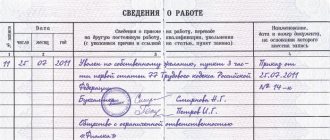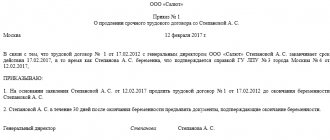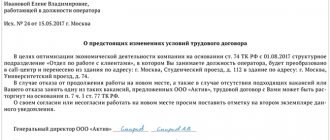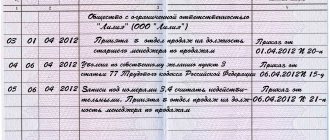Powers of the General Director
The CEO is one of the key persons in society. This is the only person who can act on behalf of the entire organization without a power of attorney. Since the director has an expanded list of powers, high demands are placed on him. Let's consider the functional responsibilities of a specialist:
- Full control over the functioning of the organization.
- Coordination of the work of branches.
- Ensuring the productivity of the entire staff.
- Formation of a work plan for the company.
- Creation of company development strategies.
- Control over the fulfillment of set goals.
- Control over document flow.
- Implementation of planned events.
- Drawing up a budget plan.
- Analytical activities to establish performance results.
An LLC can be created by one founder. In this case, he will also be the general director. This position has both disadvantages and advantages. Among the advantages is the absence of the need to report to superiors. However, there is also a minus: the presence of increased responsibility. The founder must have all relevant knowledge. The main function of the general director is control over all areas of the organization's activities. The specialist solves priority problems. Non-essential work is delegated to other employees.
Who signs the order to hire the general director of an LLC?
The answer to the question of who signs the order to hire the general director, especially if the LLC participant and the general manager are different people, depends on how many participants there are in the company. If there is only one participant, then, naturally, he must determine the candidacy of the future general director and sign the order for him to hire the general director. If the company has a group of participants, then the question of who hires the director of the LLC must be decided collectively.
A CEO application is not required. Minutes of the meeting of participants are drawn up. At the meeting, a candidate must be selected from among the LLC participants or board members of the company and delegated to this person the right to sign an order for hiring a director on behalf of the company.
An order for hiring or minutes of a meeting of participants will serve as the basis for making an entry in the work book about the hiring of the general director (letter of Rostrud dated September 22, 2010 No. 2894-6-1).
Requirements for a candidate
A candidate for the position of General Director must meet these requirements:
- Completed higher education. For example, this could be an economic or legal education. These are standard conditions. However, the society can provide special services. For example, medical. In this case, it makes sense to hire a director with a medical education.
- Experience. This condition is not specified in regulations, but employers usually consider applicants with experience. Effective problem solving is only possible with practical experience. Generally, 3 years of experience in a management position is desired.
- No criminal record. You cannot hire people who have been convicted of economic crimes and have received restrictions on holding leadership positions.
- Age. Typically, employers hire employees between 30 and 50 years of age.
This is just a sample list. It can change according to the wishes of the employer. However, the requirements for the applicant cannot contradict the law. In particular, there can be no restrictions based on gender, race or age. If an employer has unlawfully established a qualification, he is held legally liable.
Hiring a General Director - the only founder
HR officers have the most questions in situations where the general director is the only participant in the company. According to Rostrud, in this case an employment contract is not signed with the head of the organization at all.
Rostrud explains its position as follows: an employment contract is an agreement between an employer and an employee, that is, a bilateral act. If one of the parties to the employment contract is absent, it cannot be concluded. Thus, labor legislation does not apply to the relations of the sole participant of the company with the company established by him.
The only participant in the company in this situation must, by his decision, assume the functions of the sole executive body - director, general director, president, etc. Management activities in this case are carried out without concluding any contract, including an employment contract (letter of Rostrud dated March 6, 2013 No. 177-6-1).
Meanwhile, labor relations arise between the general director, the sole founder, and the organization. Let us note that Part 2 of Art. 273 of the Labor Code of the Russian Federation establishes that the provisions of Chapter 43 “peculiarities of labor regulation of the head of the organization and members of the collegial executive body of the organization” do not apply to the head of the organization, who is its only participant (founder). However, this does not mean that such a manager is not subject to the remaining norms of the Labor Code of the Russian Federation. And labor legislation obliges employers to enter into employment contracts with employees.
In this situation, you can use the explanations of Rostrud and not enter into an employment contract with the manager. But it’s better to “safeguard yourself” and draw up an employment contract. Despite the fact that in this case the employment contract will actually be signed by the same person, this will not mean that the manager enters into an agreement with himself, since the parties to the contract are different entities: on the one hand, the employing organization, on the other hand, the manager -worker.
Let us note that today the need to draw up an employment contract in this situation has lost its former urgency. Previously, the absence of an employment contract with a manager resulted in problems related to the payment of sick leave and maternity benefits. But as of January 1, 2012, the problem was resolved. In subparagraph 1, paragraph 1, article 2 of the Federal Law of December 29, 2006 No. 255-FZ “On compulsory social insurance in case of temporary disability and in connection with maternity,” an addition was made, according to which compulsory social insurance in case of temporary disability and in connection with maternity, persons working under employment contracts are subject, including heads of organizations who are the only participants (founders), members of organizations, owners of their property.
Sample protocol for the election of the General Director
www.kdelo.ru
Everyone knows that the head of an organization has a special status. However, when registering labor relations, it is necessary to comply with the requirements of the Labor Code of the Russian Federation, which apply to all employees, regardless of position. How to apply for a job as a general director?
CONCLUSION OF AN EMPLOYMENT CONTRACT
Appointment to the position of general director occurs on the basis of a decision of the participants (shareholders) of a legal entity at a general meeting. As soon as the decision of the general meeting of participants (shareholders) on the election or appointment of the head of the organization is adopted and enshrined in the minutes, it is necessary to conclude an employment contract with the head (director, general director, chairman of the cooperative), since, in accordance with Art. 16 of the Labor Code of the Russian Federation, labor relations between an employee and an employer arise on the basis of such an agreement.
The employment contract with the manager is drawn up in writing in two copies.
(one for the employee, the other for the employer) (Part 1 of Article 67 of the Labor Code of the Russian Federation).
In general, the parties develop the form of the employment contract independently, taking into account the requirements of Art. 57 and ch. 43 Labor Code of the Russian Federation. Note that on January 1, 2013, changes to the Labor Code of the Russian Federation came into force, according to which the Government of the Russian Federation is empowered to approve the standard form of an employment contract with the head of a state (municipal) institution
(Part 3 of Article 275 of the Labor Code of the Russian Federation). Resolution of the Government of the Russian Federation dated April 12, 2013 No. 329 “On the standard form of an employment contract with the head of a state (municipal) institution” approved this form and explanations for its application.
Who signs the employment contract?
According to Art. 40 of Federal Law No. 14-FZ dated 02/08/1998 “On Limited Liability Companies” (as amended on 12/29/2012; hereinafter referred to as Federal Law No. 14-FZ) in limited liability companies
an employment contract on behalf of the company can be signed:
In joint stock companies
the employment contract with the elected manager on behalf of the company is signed by the chairman of the board of directors (supervisory board) or a person authorized by the board of directors (supervisory board) of the company (clause 3 of article 69 of the Federal Law of December 26, 1995 No. 208-FZ “On Joint-Stock Companies”, as amended on 04/05/2013).
In accordance with sub. 7 clause 1 art. 20 of the Federal Law of November 14, 2002 No. 161-FZ “On State and Municipal Unitary Enterprises” (as amended on December 3, 2012) employment contract with the head of the unitary enterprise
is concluded by the owner of the property of such an enterprise.
What if the director is the only participant?
But everything is not so simple with concluding an employment relationship with a director if he is at the same time the only participant in the organization. In this case, an employment contract with such a director can also be concluded: there are no regulations containing a ban or restriction on concluding contracts with this category of employees.
In the established part 8 of Art. 11 of the Labor Code of the Russian Federation, the list of persons who are not covered by labor legislation does not indicate the head of the organization - the only participant in the company. Thus, the activity of the sole participant as the head of the organization is labor and is subject to formalization by an appropriate agreement. However, in Part 2 of Art. 273 of the Labor Code of the Russian Federation, such an exception is established.
The Ministry of Health and Social Development of Russia[1] expressed the opinion that an employment contract cannot be concluded with the head of an organization, who is the only founder (participant), member of the organization, owner of its property. A similar opinion was expressed by Rostrud[2].
Arbitration courts say the opposite: the only participant in the company has the right to receive benefits and other labor guarantees and benefits[3].
In this case, the employer is a legal entity or organization (Article 20 of the Labor Code of the Russian Federation). And an individual endowed with appropriate authority enters into (signs) an employment contract with the manager.
An example is the following entry in an employment contract:
“Limited Liability Company “Turin”, hereinafter referred to as “Employer”, represented by the founder of LLC “Turin” Ivan Mikhailovich Perov, acting on the basis of the Charter and the decision of the sole founder dated April 23, 2011 No. 1, on the one hand, and Ivan Mikhailovich Perov , hereinafter referred to as the “Employee”, on the other hand, have entered into this employment contract as follows:
An employee is hired for the position of director..."
TERM OF THE EMPLOYMENT CONTRACT
An employment contract can be concluded with the general director, in accordance with the Labor Code of the Russian Federation, by agreement of the parties, both for a certain period and for an indefinite period. In this case, a fixed-term employment contract can be concluded regardless of the organizational and legal form and form of ownership of the organization (paragraph 8, part 2, article 59 of the Labor Code of the Russian Federation).
For example,
in limited liability companies, the director is elected or appointed for a period determined by the charter or board of directors (supervisory board) of the company, if the resolution of this issue falls within the competence of the board (clause 1 of article 40 of Federal Law No. 14-FZ). The chairman of an agricultural cooperative is elected for a term of no more than five years (clause 2 of article 26 of the Federal Law of December 8, 1995 No. 193-FZ “On Agricultural Cooperation,” as amended on December 3, 2011).
It should be taken into account that the validity period of a fixed-term employment contract is determined by the organization’s charter or agreement of the parties (Part 1 of Article 275 of the Labor Code of the Russian Federation). This period, as well as the circumstances (reasons) that are the basis for concluding an agreement for a certain period, must be indicated in the employment contract (Part 2 of Article 57 of the Labor Code of the Russian Federation).
MORE ABOUT DOCUMENTS
Hiring is formalized by order
according to the unified form No. T-1 (approved by Resolution of the State Statistics Committee of Russia dated January 5, 2004 No. 1). In this case, the form can be supplemented with a line indicating the name of the document on the basis of which the leader was appointed (elected)[4].
Please note that the basis for issuing an employment order is a concluded employment contract. The protocol (decision, order of the owner of the organization’s property) on the election or appointment of a person as the head of the organization is the basis for concluding an employment contract[5].
The addition of unified forms in budgetary organizations is carried out in accordance with the Procedure for the use of unified forms of primary accounting documentation (approved by Resolution of the State Statistics Committee of Russia dated March 24, 1999 No. 20). Adding details to forms without issuing an administrative document of the manager is not allowed[6].
The order for the appointment of the head of the organization is signed by the newly elected/appointed head himself as the sole executive body. As a general rule, the employee must be familiarized with this document within three days from the date of actual start of work[7].
Work book
The manager is filled out by the person responsible for working with work books no later than a week from the date of hiring. The responsible person is appointed by order of the head of the organization[8].
All entries about the work performed are entered into the work book on the basis of the relevant order (instruction) of the employer[9].
The work book is filled out in accordance with clause 3.1 of the Instructions for filling out work books[10]. According to this paragraph, the name, date and number of the order (instruction) or other decision of the employer are entered in column 4 of the work book.
It is worth noting that when filling out the manager’s work book, you can additionally enter the details of the protocol (or decision, if the manager is the only founder) in the specified column.
NOT FORGET!
The company is obliged to report the appointment of the general director to the tax authorities. In accordance with paragraph 5 of Art. 5 of the Federal Law of 08.08.2001 No. 129-FZ “On state registration of legal entities and individual entrepreneurs” (as amended on 29.12.2012), a legal entity is obliged to inform the registration authority at its location about changes in information about a person who has the right to power of attorney to act on behalf of a legal entity, within three days from the date of change of this information according to Form P14001[11] (state duty is not paid).
Let us also recall that the general director has the right of first signature on the organization’s documents, therefore, from the moment the director is appointed, it is necessary to replace the bank card with sample signatures and a seal. This is stated in clause 7.14 of Bank of Russia Instruction No. 28-I dated September 14, 2006 “On opening and closing bank accounts and deposit accounts” (as amended on August 28, 2012). The form of the bank card is given in the Appendix to the specified Instructions of the Bank of Russia.
The organization must submit to the bank:
Thus, the process of hiring the head of an organization is in many ways similar to similar procedures for other employees, but personnel officers should not forget about the features associated with his special status.
www.profiz.ru
Registration of the general director: step-by-step instructions
Legal registration of the general director allows you to avoid fines and problems with regulatory authorities.
Hiring a general director is divided into these stages:
- Checking the candidate for professional limitations.
- Review of submitted documents.
- Organization of a constituent meeting, based on the results of which an appropriate decision is made.
- Familiarization of the hired director with the regulations and local documents.
- Drawing up an employment agreement.
- Issuing an order to hire a specialist.
- Entering data into the work book.
- Filling out the director's personal card.
- Notification from the tax office that the personnel composition of the company has changed.
- Drawing up an act of transfer of affairs.
Let's look at each of these stages in more detail.
Candidate approval
The position of the general director is elective. That is, the procedure for hiring an employee differs in a number of nuances. The applicant is approved during a meeting of the company's participants. Only if there is a decision made at this meeting can a director be appointed to the position. The final decision is made at the founding meeting based on the results of studying the resumes of applicants and attached documents. If only one candidate sent a resume, then the principle of selection is not used. In this case, the fact of approval is recorded in the protocol.
Documentary support
To be hired, you must request the following documents from the applicant:
- Autobiography.
- Copies of passport pages.
- Work book.
- Copies of education certificate.
- Pension certificate.
- Military ID.
Sometimes an employer may request additional documents:
- Document confirming completion of a medical examination.
- Characteristics from the previous place of service.
- Certificate of assignment of tax number.
When hiring a CEO, he does not need to submit an application.
Conclusion of an employment agreement
An employment contract is drawn up between the employer and the general director. The document provides this information:
- List of powers.
- Rights and obligations.
- Salary size.
- Liability for failure to comply with conditions.
- Internal rules of procedure.
- Obligations.
Even if the sole founder plays the role of general director, an employment agreement must be drawn up.
Employment notice
On the date the specialist takes office, an order must be issued for his employment. The document contains this information:
- Information about the specialist.
- Date of issue of documents.
- Grounds for appointment to the position (protocol number and date).
The document is signed by the employer and employee.
IMPORTANT! The general director must also sign the job description and the liability agreement.
Entering information into the work book
When a specialist takes up a position, an entry must be made in the work book. A representative from the HR department is in charge of this. The entry includes these details:
- Date of taking office.
- Job title.
- Number of the document that is the basis for hiring.
Registration is required.
Tax notice
To notify the tax office, you need to submit an application for amendments to the Unified State Register of Legal Entities. The application must be signed by the director. The notice must be sent within 3 days from the date of hiring the general director. The application is accompanied by a copy of the specialist’s passport, as well as the minutes of the constituent meeting. Tax representatives must make changes to the Unified State Register of Legal Entities within 10 days.
Registration of the act of transfer of affairs
The act of transfer of cases includes the following information:
- Name of the company.
- Information about the chairman of the meeting.
- Date and place of paperwork.
- List of transferred documents.
- Information about the persons present during the transfer.
- Stamp and signature.
The act is drawn up in two copies. One of them is transferred to the general director.
Registration of an employment contract
The hiring of any employee, regardless of the position for which he is employed, must be carried out in accordance with the requirements stipulated by the Russian Labor Code.
The legislator establishes the obligation to draw up two documents when hiring:
- An employment contract (is the main document that an official must follow when performing his production functions, contains comprehensive information regarding the employee’s responsibilities, his rights, salary, work schedule, etc.);
- Order of appointment to a vacant position.
However, regarding the first document, the only exception can be identified, which is the absence of an obligation to sign an employment contract with the director of the enterprise if he is the sole founder of the relevant legal entity.
When carrying out institutional inspections of the company (prosecutor's office, labor inspectorate, tax service), this document may be required; therefore, drawing up an employment contract is still recommended even for the sole founders.
In other cases, when a director is appointed from among the co-founders, the staff of the enterprise or from outside, the signing of an employment agreement is mandatory, and ignoring this clause will be grounds for administrative liability.
Dismissal at your own request
However, the manager has the right to resign at his own request, notifying the participants no later than a month in advance (Article 280 of the Labor Code of the Russian Federation). The deadline for notifying shareholders is no later than 70 days (Clause 1, Article 52, Clauses 2, 8, Article 53 of Law No. 208-FZ). In a number of cases, if the issue of appointment or dismissal of a manager (sole executive body) is within the competence of the board of directors, the board of directors is notified.
Please note: in some cases, shortened notice periods for dismissal apply (the employment contract must be terminated on the day specified by the employee in the application):
- due to the inability to continue working due to enrollment in an educational institution;
- in connection with retirement or other similar circumstances (Article 80 of the Labor Code of the Russian Federation).
The decision to dismiss a manager at his own request is not made by the general meeting, but the agenda of the extraordinary general meeting, which will appoint a new manager, includes the issue of this appointment and the reason - the dismissal of the previous manager. In this case, the resigning manager must notify the owners of an extraordinary meeting with this agenda no later than 30 days before the date of the meeting.
The notice of convening a general meeting is considered simultaneously a notice of the dismissal of the manager. And the general meeting will be considered notified of the dismissal of the manager at his own request on the day on which the meeting is scheduled.
Thus, the established one-month period for notifying the general meeting about the dismissal of a manager begins to run from the day on which the meeting is scheduled (Articles 20, 39, 80, 280 of the Labor Code of the Russian Federation).
The day of dismissal of a manager (the last day of his work) may be:
- the date specified in the resignation letter, which the participants agreed to;
- the date on which the one month allotted to the manager to warn the employer about his dismissal expires (Article 14, 280 of the Labor Code of the Russian Federation). If the monthly period expires on a weekend, then the last day of his work will be the first working day after this weekend (Article 14 of the Labor Code of the Russian Federation).
If the owners notified of the extraordinary meeting did not hold the meeting and did not elect a new manager, the current manager still has the right to resign (Article 280 of the Labor Code of the Russian Federation).
note
When a manager is dismissed on his own initiative, a standard entry is made in his work book: “Dismissed at his own request, paragraph 3 of part 1 of Article 77 of the Labor Code of the Russian Federation.”
Legal transfer to de facto LLC: additional agreement on combination
If for some reason the trust scenario described above cannot be implemented, then the following option is possible: appointing a current employee of the LLC to the position of director of the company. He assumes that the personnel department in the scenario under consideration will ask the employee who wants to be made a director to sign:
- additional agreement - on combining the current position (for example, financial director) with the position of the head of the company for a certain period;
- additional agreement - on changing the terms of the current employment contract (for example, in terms of minimizing the powers of the financial director and changing salaries).
De jure, the employee will combine 2 positions, but de facto, he will work only in 1 of them (general director) with an indefinite employment contract.
The scenario under consideration is rather beneficial to the employer because:
1. If a person signs a second additional agreement (on minimizing powers in the main position), he will have to make every effort to be a good leader, since if the corresponding agreement is canceled (on the grounds provided by law), he will become a financial director with the same powers and he will no longer be able to earn a salary without the consent of the employer.
2. If a person does not sign the second agreement, then the employer will have reason to ask the employee for results for 2 positions at once - it is unlikely that they will be satisfactory given the seriousness of both positions. As a result, there will be grounds to terminate both agreements or even the employment contract as a whole.
What if he can't?
Separately, a few words must be said about the duties that must be fulfilled when hiring a manager. We are talking about checking the right of a manager to hold his position. After all, the Code of Administrative Offenses has been in force in Russia for a long time, and one of the punishments it provides for is disqualification of a manager. This means that this person is prohibited from being accepted into leadership positions during the period of disqualification.
At the same time, a single database was created in which information about all those subjected to this punishment is entered. This is a certificate from this database that you should request when hiring a manager (Clause 2, Article 32.11 of the Code of Administrative Offenses of the Russian Federation). It is issued at the Information Centers (zonal or regional) of the Ministry of Internal Affairs at the location of the organization (you can find out the telephone number of the Information Center by calling the duty station of the Ministry of Internal Affairs unit at the location of the organization). The cost of the certificate is 1 minimum wage, and if the applicant himself applies for it, then the IC services are free. The application form for issuing a certificate was approved by order of the Ministry of Internal Affairs of the Russian Federation dated November 22, 2006 No. 957.
There is no fine for hiring a manager without such a certificate, but if it turns out that the manager is disqualified, the fine for the organization will be 100,000 rubles (Article 14.23 of the Code of Administrative Offenses of the Russian Federation).
Legal transfer to a de jure LLC: the role of the board of directors
The most, perhaps, labor-intensive, but the only one that allows for the transfer of an employee from an open-ended employment contract to the position of de jure general director (that is, in accordance with Article 72.1 of the Labor Code of the Russian Federation) is the vesting of the competence to determine the terms of office of the director of the company to the board of directors. .
First of all, a board of directors must be established in the organization: the decision to create it is enshrined in the company’s charter. The list of competencies of the board of directors is, as a rule, fixed in a separate regulation adopted by the founders. In this provision, in particular, there must be wording that the formation of the executive management bodies of the LLC is within the competence of its board of directors.
The board of directors has the right to adopt a regulation on the general director of the enterprise, which will reflect that the terms of office of the general director are determined by the employment contract, which can be fixed-term or indefinite.
Actually, for a transfer to the position of general director under a permanent employment contract, an additional agreement is again drawn up - this time on the transfer. This agreement is generally signed by the employer on the part of the chairman of the board of directors.
Special cases of dismissal
The law also provided for special cases of dismissal of a manager (Article 81 of the Labor Code of the Russian Federation):
- the owner of the company has changed;
- the manager made an unreasonable decision, which resulted in damage to the company;
- The manager grossly violated his job duties one time.
· When a manager is dismissed on the initiative of the owner of the company or the board of directors, the entry in the work book must contain a reference to a specific paragraph of Article 81 of the Labor Code.
A change of ownership of a company means a transfer of ownership of the company's property as a whole from one person to another. For example, during purchase and sale, privatization, etc.
note
But a change in the composition of participants (shareholders) is not considered a change of owner (clause 32 of the resolution of the Plenum of the Supreme Court of the Russian Federation of March 17, 2004 No. 2 “On the application of the Labor Code by the courts of the Russian Federation”).
When a manager is dismissed and the owner of the organization’s property changes, the new owner is obliged to pay compensation to the manager in the amount of at least three average monthly earnings (Article 181 of the Labor Code of the Russian Federation).
In order to fire a manager for an unreasonable decision, it is necessary to prove that his actions led to damage to the company. This can be done during an audit, the procedure for which is usually established by the company’s charter.
The audit is carried out by a special commission, the decision to create which is made by the founders of the company at a general meeting. If the company, in addition to the director, is managed by a board of directors, its members can also be included in the commission.
The purpose of the commission’s activities is to find out whether the damage could have been avoided if the manager had made a different decision (clause 48 of the resolution of the Plenum of the Supreme Court of the Russian Federation of March 17, 2004 No. 2).
The Labor Code does not say which violations of a manager’s labor discipline can be considered gross.
One of such violations may be failure to fulfill the duties of a manager, which could result in harm to the health of employees or damage to the property of the company. For example, when a manager refused to install an automatic fire extinguishing system, and as a result of the resulting fire, an employee was injured, and part of the company’s property was destroyed by fire.
The head of the organization (including the former) bears full financial responsibility for direct actual damage caused to the organization (Part 1 of Article 277 of the Labor Code of the Russian Federation). Direct actual damage is understood as a real decrease in the employer’s available property or deterioration in the condition of said property (including property of third parties located at the employer, if the employer is responsible for the safety of this property), as well as the need for the employer to make costs or excessive payments for the acquisition, restoration of property or compensation for damage caused by the employee to third parties (Part 2 of Article 238 of the Labor Code of the Russian Federation). In this case, it is possible to involve the head of the organization on the basis of Chapters 37 and 39 of the Labor Code (clause 5 of Resolution of the Plenum of the Armed Forces of the Russian Federation of June 2, 2015 No. 21, hereinafter referred to as Resolution No. 21).
The head of the organization (including the former) compensates the organization for losses caused by his guilty actions only in cases provided for by federal laws (Part 2 of Article 277 of the Labor Code of the Russian Federation). For example, a manager is liable to the company or shareholders for losses caused by their guilty actions (inaction) that violate the procedure for acquiring shares in an open company (Article 71 of Law No. 208-FZ). The calculation of losses is carried out in accordance with Article 15 of the Civil Code, according to which losses mean actual damage, as well as lost income (lost profits) (clause 6 of Resolution No. 21).
Transfer to the position of director of an LLC de jure: general scenario
Of course, a scenario is possible, it can be conditionally called general, in which a current employee of the LLC will have a fixed-term employment contract for his position. In this sense, there will be no obstacles from the point of view of labor law to the appointment of this employee as General Director in the transfer procedure, which is regulated by the provisions of Art. 72.1 Labor Code of the Russian Federation.
This procedure involves:
1. The founders make a decision to appoint a new general director and reflect this decision in the minutes. If there is 1 owner of the company, then only a resolution issued by him will be required.
2. The conclusion by the company’s personnel service of an additional agreement with the employee regarding the transfer to the position of director (later in the article we will consider the nuances of concluding this agreement with the employee).
Find out more about the procedure for applying the provisions of Art. 71.2 of the Labor Code of the Russian Federation you can in the article “Art. 72 of the Labor Code of the Russian Federation: questions and answers.”
Transfer to the position of director of a joint stock company: nuances
How to formalize a transfer to the position of General Director, in turn, in a joint stock company?
Taking into account the specifics of the legislation regulating corporate and labor relations in joint-stock companies, it is legitimate to say that such enterprises do not have the difficulties that characterize the corresponding transfer to an LLC. The current rules of law regulating the establishment and activities of a joint-stock company do not in any way regulate how the term of office of a director should be determined. Thus, the founders of a joint-stock company can fix it not only in the charter, but also in any local regulatory act - for example, a decision on the appointment of a director.
It is worth noting that the board of directors of a joint-stock company, unlike the similar structure of an LLC, by default does not have those competencies that imply the establishment of the term of office of the director of the organization - these competencies are not listed in subparagraph. 9 clause 1 art. 65 of the Law “On JSC” dated December 26, 1995 No. 208-FZ.
***
Thus, in a JSC it is possible to establish the powers of the general director indefinitely. In this case, there are no obstacles to the transfer of an employee with an open-ended employment contract to the position of General Director of the JSC on the basis of Art. 72.1 Labor Code of the Russian Federation.
You can learn more about the specifics of legislative regulation of the activities of companies with JSC status in the article “All JSCs are now subject to mandatory audit.”










